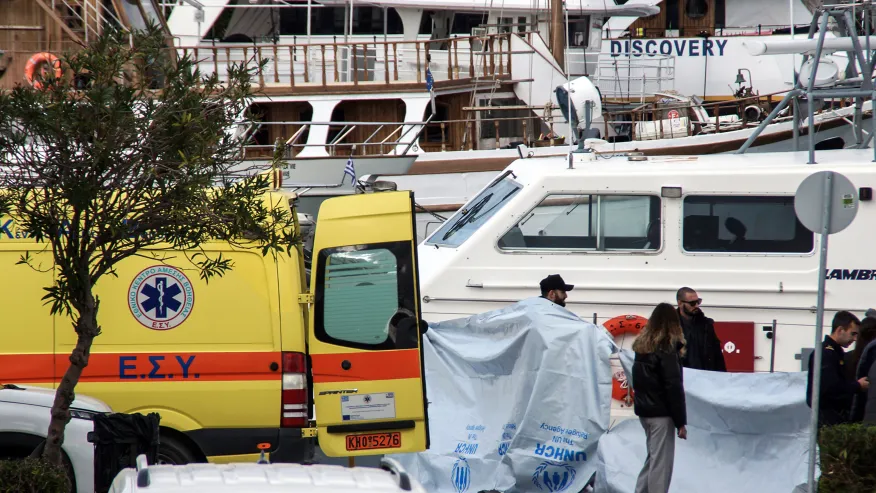A tragic incident unfolded near the eastern Greek island of Rhodes on Friday when a speedboat carrying migrants capsized, resulting in the deaths of eight people. Greek authorities confirmed that 18 others were rescued in a significant operation involving coast guard vessels and a helicopter.
The Greek coast guard reported that the speedboat was performing dangerous maneuvers to evade a patrol vessel. These actions caused several passengers to be thrown into the sea, leading to the devastating outcome. Efforts to locate additional passengers are ongoing, as it remains unclear if more people are missing.
Rhodes, situated close to Turkey’s coastline, is a common route for smugglers in the eastern Mediterranean. This incident marks the second fatal migrant tragedy within a week, highlighting the perilous journeys many undertake in search of safety and better opportunities.
Last weekend, another disaster occurred when a boat partially sank south of Crete, leaving seven migrants dead and dozens missing. During that tragedy, four rescue operations saved over 200 migrants. However, the search near the tiny island of Gavdos was called off earlier this week, leaving many unaccounted for.
Why are so many migrants risking their lives?
Most are fleeing conflict zones, with Syrians forming the largest group, followed by Afghans, Egyptians, Eritreans, and Palestinians. The rising number of arrivals in Greece is linked to escalating conflicts in the Middle East, pushing desperate individuals to undertake dangerous journeys.
According to Greek government data, over 60,000 migrants are expected to arrive in Greece via illegal routes this year. The sharp increase has placed immense pressure on the country’s humanitarian resources. Athens has expressed growing concerns about managing the influx, as authorities brace for further challenges in the region.
Could better international cooperation reduce these tragedies?
Many believe that addressing the root causes of migration, such as conflict and poverty, is essential to prevent further loss of life. For now, Greek authorities continue their efforts to rescue and assist those risking everything to reach safety.

